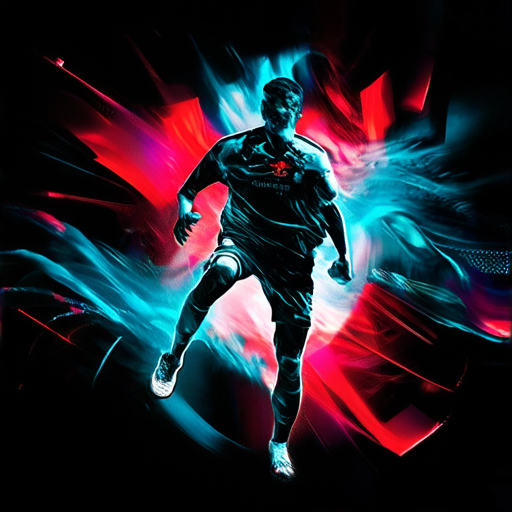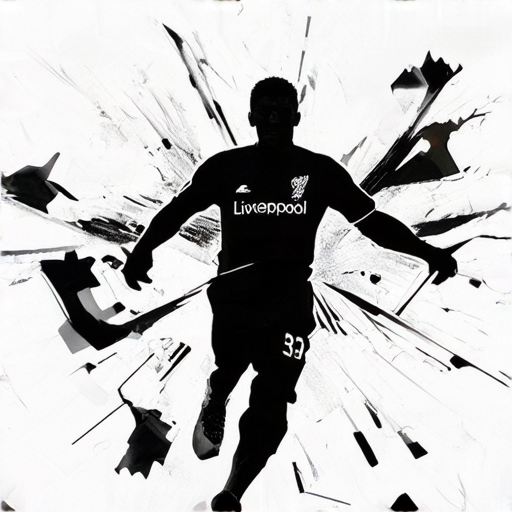A Liverpool player’s performance is a cornerstone of the team’s success, shaping both individual achievements and collective triumphs. As we delve into evaluating performance today, it becomes clear that the impact of a player’s contribution extends far beyond the pitch. From consistent standout displays to moments of brilliance, every aspect of a Liverpool player’s performance plays a pivotal role in driving the team forward. This blog post explores the intricate dynamics of how individual efforts translate into team success, examining the factors influencing performance and offering insights into evaluating metrics that define excellence. By understanding these elements, fans gain deeper appreciation for the role each player plays in the club’s journey. Whether it’s through leadership, adaptability, or sheer skill, the performance of a Liverpool player remains a testament to the team’s ability to compete at the highest level. Join us as we uncover the key trends, challenges, and strategies that define the evolving landscape of Liverpool player performance.

How Does a Liverpool Player’s Performance Impact the Team’s Overall Success?
A Liverpool player’s performance significantly influences the team’s overall success due to their pivotal roles in both offensive and defensive dynamics. Here’s a breakdown of how individual performances drive collective success:1. **Direct Contributions**: Key players like Mohamed Salah, Virgil van Dijk, and Sadio Mané consistently deliver exceptional performances, driving the team’s attacking capabilities and defensive stability. Their ability to score, create chances, and defend ensures the team remains competitive.2. **Team Cohesion**: The interaction and chemistry among players enhance teamwork and coordination, leading to synchronized performances that elevate the team’s game. This synergy is crucial for overcoming challenges and maintaining high standards.3. **Leadership and Influence**: Players like Jordan Henderson and Thiago Alcântara not only excel on the pitch but also inspire teammates through leadership and mentorship, fostering a culture of excellence and resilience.4. **Consistent Pressure**: High-performing players create a competitive environment, pushing the team to achieve peak performance consistently. This pressure ensures the team maintains its position at the top of the league table.5. **Attracting Resources**: Exceptional performances attract sponsorships, media attention, and fan interest, generating significant revenue streams for the club, further reinforcing the team’s success.In essence, Liverpool’s success is a blend of individual brilliance and collective effort, making each player’s contribution invaluable to the team’s overall achievement.
How Does a Liverpool Player’s Performance Impact the Team’s Overall Success?
A Liverpool player’s performance significantly influences the team’s overall success due to their pivotal roles in both offensive and defensive dynamics. Here’s a breakdown of how individual performances drive collective success:1. **Direct Contributions**: Key players like Mohamed Salah, Virgil van Dijk, and Sadio Mané consistently deliver exceptional performances, driving the team’s attacking capabilities and defensive stability. Their ability to score, create chances, and defend ensures the team remains competitive.2. **Team Cohesion**: The interaction and chemistry among players enhance teamwork and coordination, leading to synchronized performances that elevate the team’s game. This synergy is crucial for overcoming challenges and maintaining high standards.3. **Leadership and Influence**: Players like Jordan Henderson and Thiago Alcântara not only excel on the pitch but also inspire teammates through leadership and mentorship, fostering a culture of excellence and resilience.4. **Consistent Pressure**: High-performing players create a competitive environment, pushing the team to achieve peak performance consistently. This pressure ensures the team maintains its position at the top of the league table.5. **Attracting Resources**: Exceptional performances attract sponsorships, media attention, and fan interest, generating significant revenue streams for the club, further reinforcing the team’s success.In essence, Liverpool’s success is a blend of individual brilliance and collective effort, making each player’s contribution invaluable to the team’s overall achievement.
How Do Liverpool Players’ Performances Get Evaluated?
Liverpool evaluates player performances through a combination of statistical metrics and qualitative assessments, ensuring a holistic approach to monitoring progress and shaping strategies.
Statistical Metrics
- Goals and Assists: Tracking goals scored and assists provided offers insight into attacking contributions.
- Pass Accuracy: Assessing the precision of passes reflects technical ability and team integration.
- Tackles and Interceptions: Highlighting defensive impact through tackle counts and interception rates.
- Shots on Target and Misses: Evaluating efficiency in front of goal and conversion rates.
- Dribbling and Creativity: Measuring flair and ability to exploit opponents in tight spaces.
- Discipline and Fouls: Monitoring conduct and fouling incidence for consistency and sportsmanship.
Qualitative Assessments
- Positional Play: Observing ability to adapt to different formations and roles in attack and defense.
- Work Rate: Evaluating energy levels, stamina, and ability to contribute throughout the match.
- Leadership and Influence: Assessing impact on team dynamics and ability to motivate peers.
- Consistency and Reliability: Tracking dependability in performance across various competitions and match contexts.
- Progression and Development: Monitoring growth over time and adaptation to higher competitive demands.
Implementation and Strategy
Coaches and analytics teams review these metrics alongside match footage to identify strengths and areas for improvement. Individual goals and benchmarks are set, with regular reviews to track progress. This evaluation process aids in tactical adjustments and player development planning, ensuring the team remains competitive and aligned with long-term objectives.

How Do Liverpool Players’ Performances Get Evaluated?
Liverpool evaluates player performances through a combination of statistical metrics and qualitative assessments, ensuring a holistic approach to monitoring progress and shaping strategies.
Statistical Metrics
- Goals and Assists: Tracking goals scored and assists provided offers insight into attacking contributions.
- Pass Accuracy: Assessing the precision of passes reflects technical ability and team integration.
- Tackles and Interceptions: Highlighting defensive impact through tackle counts and interception rates.
- Shots on Target and Misses: Evaluating efficiency in front of goal and conversion rates.
- Dribbling and Creativity: Measuring flair and ability to exploit opponents in tight spaces.
- Discipline and Fouls: Monitoring conduct and fouling incidence for consistency and sportsmanship.
Qualitative Assessments
- Positional Play: Observing ability to adapt to different formations and roles in attack and defense.
- Work Rate: Evaluating energy levels, stamina, and ability to contribute throughout the match.
- Leadership and Influence: Assessing impact on team dynamics and ability to motivate peers.
- Consistency and Reliability: Tracking dependability in performance across various competitions and match contexts.
- Progression and Development: Monitoring growth over time and adaptation to higher competitive demands.
Implementation and Strategy
Coaches and analytics teams review these metrics alongside match footage to identify strengths and areas for improvement. Individual goals and benchmarks are set, with regular reviews to track progress. This evaluation process aids in tactical adjustments and player development planning, ensuring the team remains competitive and aligned with long-term objectives.
Factors Influencing Liverpool Players’ Performance
The performance of Liverpool players is influenced by a combination of several key factors:
- Fitness : Physical conditioning is paramount. Players must maintain high levels of endurance, strength, and agility to meet the demands of Premier League matches.
- Mental Focus : The ability to stay composed and focused under pressure is critical, especially during high-stakes games.
- Injuries and Recovery : Recovery from injuries and maintaining peak condition through proper rehabilitation protocols directly impacts performance.
- Positional Demands : Each player’s role in the team varies, requiring specific skill sets and adaptability to different game situations.
- Tactical Awareness : Understanding the team’s strategies and adapting to opposition tactics is essential for effective gameplay.
- Team Collaboration : Effective communication and teamwork are vital for synchronized performances on the field.
- Managerial Impact : Coaching and leadership from managers play a significant role in motivating and guiding players.
- Nutrition and Recovery : Proper nutrition and recovery techniques support overall health and performance.
- Competition Level : Playing against high-quality opponents challenges players to elevate their performance levels.

Factors Influencing Liverpool Players’ Performance
The performance of Liverpool players is influenced by a combination of several key factors:
Fitness
Physical fitness is paramount. Players must maintain high levels of endurance, strength, and agility to meet the demands of Premier League matches. Regular training sessions and recovery routines are essential to sustain peak performance.
Mental Focus
Top-tier mental focus is critical, especially under pressure. Players must remain calm and composed, making quick decisions and reacting effectively to situations during the game.
Injuries and Recovery
Preventing and managing injuries is vital. A robust injury prevention program and effective recovery techniques can help players stay fit and performing at their best.
Positional Demands
Each player’s role in the team varies, requiring specific skill sets. For instance, central defenders must excel in aerial duels, while attacking midfielders need exceptional ball control and vision.
Tactical Awareness
Understanding the team’s tactics and adapting to game situations quickly is crucial. Players must be able to read the opponent’s movements and adjust strategies accordingly.
Teamwork
Collaboration is key. Players rely on each other’s strengths, work rate, and decision-making to create cohesive attacks and defend effectively.
Managerial Impact
The manager’s leadership, tactics, and motivation significantly influence player performance. Jurgen Klopp’s ability to inspire and implement effective strategies has been pivotal for Liverpool’s success.
Nutrition and Recovery
Adequate nutrition and recovery practices support physical and mental preparedness. Proper fueling before and after matches ensures players maintain optimal energy levels and recover swiftly from fatigue.
Competition
Playing against high-quality opposition challenges players to perform at their best. Matches against teams like Manchester City and Chelsea push players to elevate their performance levels.
For more detailed insights into each of these factors and how they contribute to Liverpool’s success, visit The Anfield Talk .




0 Comments